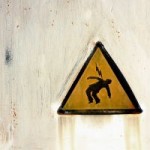 Capt. John DeFillippo, CHMP, EMT-B
Capt. John DeFillippo, CHMP, EMT-BThese are tough economic times and businesses are looking to cut costs and save money. A disturbing trend I have noticed is the willingness of many companies to make cuts in safety programs and employee training in a misguided attempt to improve the bottom line.
Trained workers are safer workers. The facts bear this out. Shortsighted statements Ive heard include; We dont have problems in that area, so were cutting back on training., when the training was most likely the reason for the lack of problems.
Often, it is difficult to see how beneficial training can be until you experience the effects of its absence. Negative indications show themselves in higher EMRs, increased workmans compensation claims, lost production time, and property damage. Only companies actively tracking and trending incidents are likely to realize this. (By the way, such companies would also be the ones least likely to make such cuts in the first place!)
It takes just one serious incident resulting in injuries to quickly eliminate any savings associated with cutting programs and training. Whats more, most health and safety training is required by regulations, so there is also the risk of fines for non-compliance. These can be hefty and since most companies dont budget for them, they become an extraordinary cost right off the bottom line!
At Emilcott, we have seen firsthand the effects that result from a lack of training. Recently, we were hired by a client who laid-off their safety director a couple years prior. After starting our work, we informed the client of numerous safety violations throughout their organization. These appeared to be a direct result of the lapse in proper safety training since they no longer had a safety director to oversee their program. Through the Emilcott Training Institute, our client was able to receive the training needed to avoid these safety violations and keep their employees safe and on the job. However, in their attempt to save money, the client ended up spending more in a short period of time just to catch up.
Making drastic H&S budget cuts just never pay off. As experienced health and safety consultants, we work with our clients to offer solutions when budgets get tight:
- Outsource until you can hire again we have provided EHS professionals at our clients sites for just this purpose for both short and long term requirements.
- Prioritize your H&S needs consider the total reduction in your workforce or operations to determine where you can pull back and where you cannot.
- Take advantage of training courses open to the public it may no longer be economically sound to run a training course in-house, but dont lapse on required courses.
- Take advantage of FREE resources many consultants provide lots of free info and OSHA will provide all types of assistance at no cost. As an example, Emicott offers a comprehensive Free Training Needs Assessment at www.emilcott.com!
- Pool resources look toward your industrys professional organizations or neighboring companies to share services. Maybe a part-time Safety Director is better than none at all.
- Ask a professional put together a plan and a program to get you through the lean times
Has your company adjusted their health and safety program for leaner times?
Have you seen a direct effect and how are you compensating?


